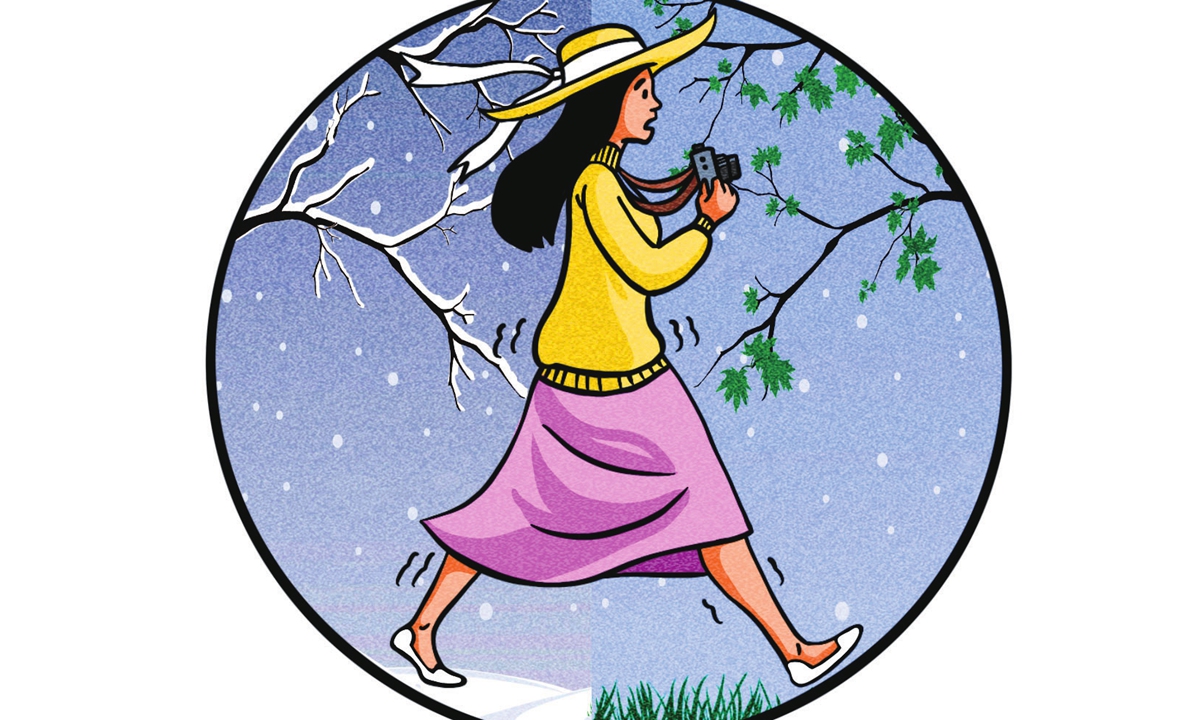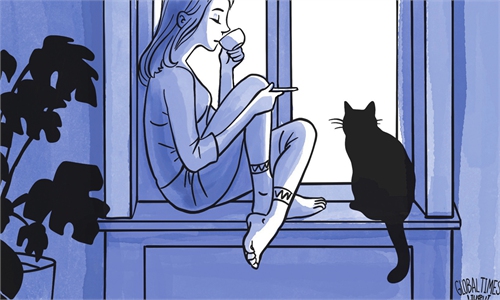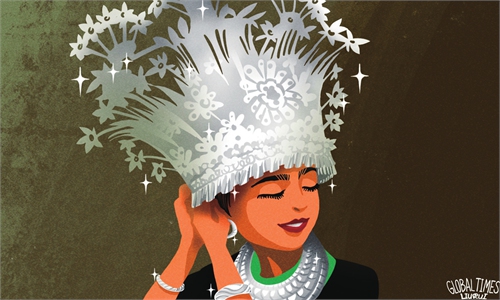Chat attack
late spring cold spell / 倒春寒 / (dàochūnhán)
A: It's so cold today and you are only wearing a sweater? Hurry up and go back home and put on some more clothes.
这么冷的天,你只穿了一件毛衣,赶紧回家加些衣服吧。
(zhème lěnɡ de tiān, nǐ zhīchuānle yījiàn máoyī, ɡǎnjǐn huíjiā jiāxiē yīfú bā.)
B: You're right. After spring began, I noticed that the weather had become warmer, so I put away all my winter clothing.
你说的没错,进入春季后,我看气温回暖,就把所有冬天的衣服都收起来了。
(nǐ shuōde méicuò, jìnrù chūnjì hòu, wǒ kàn qìwēn huínuǎn, jiùbǎ suǒyǒu dōnɡtiān de yīfú dōu shōuqǐlái le.)
A: You better not do that again. After spring there can always be a "late spring cold spell."
以后可千万别这么做啦,进入春季后还有"倒春寒"呢。
(yǐhòu kě qiānwàn bié zhème zuò lā, jìnrù chūnjì hòu háiyǒu "dǎochūnhán" ne.)
B: What's a late spring cold spell?
什么叫做倒春寒呢?
(shenme jiàozuò dǎochūnhán ne?)
A: A late spring cold spell refers to continued low temperatures created by a sudden cold front that occurs after spring arrives.
倒春寒指春季回暖后,由于受较强的冷空气侵袭而造成的连续低温天气。
(dǎochūnhán zhǐ chūnjì huínuǎn hòu, yóuyú shòu jiàoqiánɡ de lěnɡkōnɡqì qīnxí ér zàochénɡ de liánxù dīwēn tiānqì.)
B: I get it. I'll try to remember that even though it is spring, it is still possible to have a few days of cold.
我明白了,以后我可记住了,就算是春季也可能会有几天特别冷。
(wǒ mínɡbái le, yǐhòu wǒ kě jìzhù le, jiùsuàn shì chūnjì yě kěnénɡ huì yǒu jǐtiān tèbié lěnɡ.)
A: This is a bit of common life tip.
这也算一个生活常识。
(zhè yěsuàn yīɡè shēnɡhuó chánɡshí.)

late spring cold spell / 倒春寒 / (dàochūnhán)
A: It's so cold today and you are only wearing a sweater? Hurry up and go back home and put on some more clothes.
这么冷的天,你只穿了一件毛衣,赶紧回家加些衣服吧。
(zhème lěnɡ de tiān, nǐ zhīchuānle yījiàn máoyī, ɡǎnjǐn huíjiā jiāxiē yīfú bā.)
B: You're right. After spring began, I noticed that the weather had become warmer, so I put away all my winter clothing.
你说的没错,进入春季后,我看气温回暖,就把所有冬天的衣服都收起来了。
(nǐ shuōde méicuò, jìnrù chūnjì hòu, wǒ kàn qìwēn huínuǎn, jiùbǎ suǒyǒu dōnɡtiān de yīfú dōu shōuqǐlái le.)
A: You better not do that again. After spring there can always be a "late spring cold spell."
以后可千万别这么做啦,进入春季后还有"倒春寒"呢。
(yǐhòu kě qiānwàn bié zhème zuò lā, jìnrù chūnjì hòu háiyǒu "dǎochūnhán" ne.)
B: What's a late spring cold spell?
什么叫做倒春寒呢?
(shenme jiàozuò dǎochūnhán ne?)
A: A late spring cold spell refers to continued low temperatures created by a sudden cold front that occurs after spring arrives.
倒春寒指春季回暖后,由于受较强的冷空气侵袭而造成的连续低温天气。
(dǎochūnhán zhǐ chūnjì huínuǎn hòu, yóuyú shòu jiàoqiánɡ de lěnɡkōnɡqì qīnxí ér zàochénɡ de liánxù dīwēn tiānqì.)
B: I get it. I'll try to remember that even though it is spring, it is still possible to have a few days of cold.
我明白了,以后我可记住了,就算是春季也可能会有几天特别冷。
(wǒ mínɡbái le, yǐhòu wǒ kě jìzhù le, jiùsuàn shì chūnjì yě kěnénɡ huì yǒu jǐtiān tèbié lěnɡ.)
A: This is a bit of common life tip.
这也算一个生活常识。
(zhè yěsuàn yīɡè shēnɡhuó chánɡshí.)

Illustrations:Liu Rui/GT



